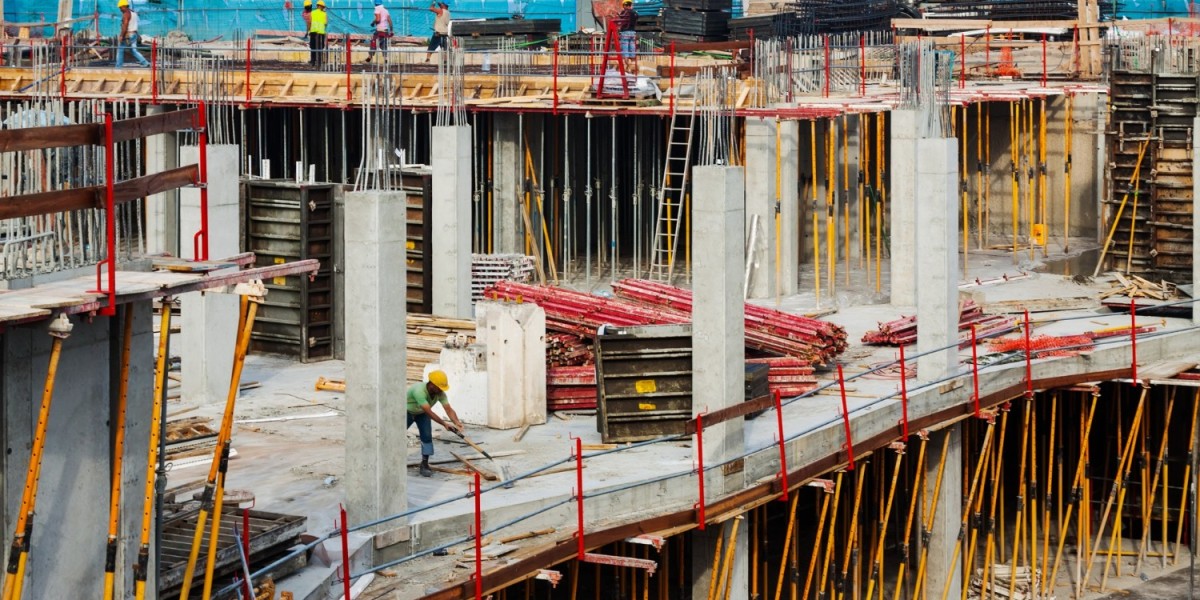Introduction
The mining and tunneling industries operate in some of the harshest and most unpredictable environments on Earth. Deep underground, where rock pressure, groundwater, and geological faults converge, ensuring stability and safety is both a technical and economic challenge. Two solutions that have become essential to modern underground construction are cable grout and Tunnel Guard.
Cable grout strengthens cable bolts, which act as critical support elements in rock masses, while Tunnel Guard provides a robust protective liner against rockfalls, water seepage, and long-term wear. Together, these technologies form a vital part of mining support systems, ensuring that tunnels and shafts remain safe, stable, and operational.
In this blog, we’ll explore the roles of cable grout and Tunnel Guard in detail, including how they work, why they’re important, and the benefits they bring to underground projects. We’ll also look at cost considerations, innovations, and best practices for implementing these systems effectively.
What is Cable Grout?
Cable grout is a specialized material used to anchor cable bolts into rock formations. Cable bolts are long, high-strength steel strands inserted into drilled holes to stabilize weak rock. Grouting fills the space between the bolt and the surrounding rock, ensuring strong adhesion and load transfer.
Key Functions of Cable Grout:
Anchorage: It secures cable bolts firmly in place.
Load transfer: Ensures forces from the rock mass are evenly distributed.
Durability: Protects cables from corrosion and environmental damage.
Safety: Reduces risks of collapses, especially in high-stress mining zones.
Without high-quality grout, cable bolts cannot function effectively. Weak or poorly applied grout can compromise the integrity of the entire reinforcement system, leading to costly failures or hazardous conditions.
The Importance of Cable Grouting in Mining
Cable grouting is especially critical in deep-level mining, where rock pressures increase dramatically. For example, in gold mines that extend several kilometers below the surface, ground movements are intense, and traditional support systems alone cannot manage the stress. Cable bolts, combined with effective grout, provide the additional support needed to maintain tunnel integrity.
Some key benefits of cable grouting include:
Extended tunnel lifespan: Grouted cable bolts ensure long-term stability.
Reduced downtime: Stronger supports mean fewer collapses and less disruption.
Cost savings: While grouting adds upfront cost, it prevents expensive repairs later.
Worker safety: Secure rock masses reduce the risk of injuries or fatalities.
In practice, mines that use high-quality grout for their cable bolts report fewer structural failures, even under extreme conditions.
What is Tunnel Guard?
While cable grout reinforces rock masses from within, Tunnel Guard acts as a protective barrier applied directly to exposed rock surfaces. It is a specially engineered thin spray liner (TSL) designed to coat tunnel walls and provide both immediate and long-term stability.
Key Features of Tunnel Guard:
High adhesion: Bonds effectively to irregular rock surfaces.
Durability: Resistant to water, chemical exposure, and wear.
Flexibility: Maintains strength even under small ground movements.
Safety enhancement: Prevents small rock fragments from detaching and injuring workers.
Tunnel Guard is often applied in combination with other systems, such as cable grouting and shotcrete, to create a comprehensive ground support structure.
The Role of Tunnel Guard in Underground Construction
Tunnels face multiple challenges including falling debris, groundwater ingress, and long-term erosion. Tunnel Guard addresses these issues directly:
Surface protection: Seals off loose rock and prevents spalling.
Moisture control: Acts as a barrier against water penetration.
Enhanced visibility: Its smooth surface helps improve lighting conditions underground.
Improved safety: Reduces risks of falling rock fragments in active working areas.
In mines across Africa and globally, Tunnel Guard has become a standard part of support strategies, ensuring safer working environments and reducing costly maintenance.
How Cable Grout and Tunnel Guard Work Together
While cable grout and Tunnel Guard serve different functions, their effectiveness is amplified when used together.
Cable grout secures the deep rock mass through anchored cable bolts.
Tunnel Guard protects the exposed surface of tunnels, preventing rockfalls and surface degradation.
This dual approach ensures both internal and external stability, which is critical in environments with complex geology. For instance, in platinum mines in South Africa, combining cable grouting with Tunnel Guard reduced rockfall-related accidents by nearly 30% over a five-year period.
Cost Considerations: Balancing Safety and Budget
One of the key questions project managers face is whether these solutions are cost-effective. While there is an initial investment involved, the long-term benefits far outweigh the expenses.
Cable grout costs depend on factors such as hole depth, grout volume, and material specifications.
Tunnel Guard costs vary with tunnel length, surface condition, and thickness applied.
However, mines and contractors often find that these upfront investments significantly reduce long-term maintenance, downtime, and accident-related costs. For example, one coal mine reported saving millions in repairs and lost production by proactively applying Tunnel Guard in combination with grouted support systems.
Innovations in Cable Grout and Tunnel Guard
Technology continues to improve the efficiency and performance of these support systems. Recent innovations include:
Fast-setting grout formulations: Reduce installation time and improve early strength.
Fiber-reinforced Tunnel Guard: Adds flexibility and toughness under high-stress conditions.
Eco-friendly admixtures: Lower environmental impact without sacrificing durability.
Robotic application systems: Enhance precision in applying Tunnel Guard coatings.
These advancements make cable grouting and Tunnel Guard more accessible, reliable, and cost-effective for modern projects.
Best Practices for Implementation
To maximize the benefits of cable grout and Tunnel Guard, contractors and project managers should follow best practices:
Proper site assessment: Geological surveys help determine grout specifications and liner thickness.
Skilled contractors: Experienced applicators ensure correct mixing and application.
Quality control: Regular testing of grout strength and liner adhesion is essential.
Integration: Combining these systems with shotcrete, rock bolts, and drainage systems creates comprehensive protection.
Monitoring: Continuous monitoring of tunnel conditions ensures early detection of potential failures.
By following these practices, projects can achieve both safety and cost efficiency.
Case Study: Enhancing Safety with Cable Grout and Tunnel Guard
A case study from a South African deep-level gold mine highlights the power of combining cable grout with Tunnel Guard. The mine faced frequent collapses due to fractured rock formations. After implementing a system of fully grouted cable bolts reinforced with Tunnel Guard lining:
Rockfall incidents decreased by 45%.
Production downtime reduced by 25%.
Worker injury rates dropped significantly.
The initial investment paid for itself within two years through reduced repair costs and improved productivity.
Conclusion
In the challenging environments of mining and tunneling, ensuring safety and stability is not optional — it’s essential. Cable grout provides the deep reinforcement needed to secure cable bolts and stabilize rock masses, while Tunnel Guard delivers surface protection against rockfalls, water, and erosion.
When used together, these systems create a powerful, multi-layered defense that improves worker safety, reduces downtime, and extends the lifespan of underground structures. While upfront costs exist, the long-term benefits in efficiency, safety, and cost savings make them indispensable for modern mining and construction projects.
For organizations looking to enhance tunnel safety and productivity, investing in cable grout and Tunnel Guard is not just a technical decision — it’s a commitment to safer, more sustainable operations.
Frequently Asked Questions (FAQ)
1. What is the purpose of cable grout in mining?
Cable grout secures cable bolts in drilled holes, ensuring strong anchorage and effective load transfer. It enhances tunnel stability and reduces the risk of collapses in weak or fractured rock.
2. How does Tunnel Guard differ from shotcrete?
Tunnel Guard is a thin spray liner designed for surface protection, while shotcrete is a thicker concrete spray used for structural reinforcement. Both can be used together, but Tunnel Guard is often applied for immediate sealing and safety.
3. Is Tunnel Guard cost-effective?
Yes. While it adds upfront costs, Tunnel Guard reduces long-term expenses by minimizing rockfalls, maintenance, and production downtime. Many mines recover the cost quickly through improved safety and efficiency.
4. Can cable grout and Tunnel Guard be used in civil construction projects?
Absolutely. Beyond mining, these systems are also effective in road tunnels, hydropower facilities, underground metros, and slope stabilization projects.
5. What factors affect the cost of cable grouting?
Costs depend on hole depth, grout material type, quantity required, and the geological conditions of the site. Specialized fast-setting or corrosion-resistant grouts may also increase prices.
6. How long does Tunnel Guard last once applied?
Tunnel Guard is designed for long-term durability. Its lifespan depends on environmental conditions, but when properly applied, it can protect tunnel surfaces for many years with minimal maintenance.









